In this interconnected, tech-driven world, digital skills are integral to our day-to-day lives. However, the digital divide – the gap between those who have full access to digital technologies and those who don’t – presents a barrier to progress.
While 92% of organisations state that basic digital skills are important for their employees’ roles – with four in five job vacancies requiring them – 23% report a significant skills gap. This data, compiled by the Learning & Work Institute, indicates that nearly a quarter of employers do not believe their workforce is sufficiently digitally equipped to carry out their work.
As the UK’s biggest employer – and, in this sense, a microcosm of wider society – the NHS reflects this national skills shortage within its own workforce. With the use of technology becoming more prevalent, and critical to delivering effective health services, team members must become fully competent, confident and capable in its use.
What is digital literacy?
Although definitions vary considerably, digital literacy generally refers to the information technology skills needed for the twenty-first century.
A digitally literate individual is one with the requisite competencies to find, evaluate, utilise, share and create content using information technologies and the Internet. Basic digital skills include having the ability to: use every day ICT software, such as Microsoft Word and Excel; process digital information and content; communicate digitally; and learn new digital skills.
Likewise, Health Education England and the Royal College of Nursing (RCN) define digital literacy as “those capabilities that fit someone for living, learning, working, participating and thriving in a digital society.” These digital literacy capabilities are integral to delivering safe, effective, and personalised care. The benefits are manifold: from ensuring that accurate medical records and results reach the right people in time, to helping staff feel comfortable and equipped to operate in a digital workplace.
The nhs.uk website hosts a Digital Champions Programme Toolkit, a Digital Literacy Self-Assessment Diagnostic Tool – underpinned by the Health and Care Digital Capabilities Framework – and other resources to help identify knowledge gaps and upskill staff members.
Why is digital literacy important in nursing?
‘Every nurse an E-nurse’, a report compiled by the RCN, outlines how the profession could be transformed by data, information, knowledge and technology. It states that proper integration of these tools could offer:
- Better outcomes for patients – digital tools have the potential to improve services for those receiving care, leading to better, patient-centred experiences and health and wellbeing outcomes.
- Better experiences for staff – the working lives of nurses and midwives could be improved by technology, enabling people to feel increased empowerment and satisfaction in their roles.
- More efficient ways of working – care could be delivered more efficiently, and a digitally enabled health service could release time for clinicians and healthcare workers to devote to the people and populations who require their services.
In clinical practice, multiple case studies demonstrate the importance and efficacy of digital literacy skills among healthcare professionals. Healthmanagement.org cite the rollout of a telehealth hub across 210 care homes; by enabling remote nursing triage for patients with long-term conditions, it led to a 35% reduction in hospital admissions and a 59% reduction in hospital bed days.
Other examples of digital health technologies include:
- Real-time monitoring of patient journeys and clinical metrics
- A digital photography app and accompanying database which improved the assessment and management of wounds following cardiothoracic surgery
- Digital patient diaries in critical care which enabled families visiting patients to document comments and concerns
- Wearable healthcare tech and information gathered by mobile devices
- Texting services and websites for young people to discuss health and mental health issues
- An app to help inpatients manage their diabetes
- Handheld devices for 6,000+ staff which reduced the burden of administrative tasks, allowing the rapid collection of health information
- A shared system between GPs, community nurses and discharge nurses, allowing for smoother transition between acute and community settings
- Screens and rolling presentations in public clinics
Such digital innovations lead to less duplication of activity, reduced miscommunication and increased patient safety. In short, they have the potential to transform the delivery of public health across the sector.
Challenges of digital literacy in healthcare
A move to full digital literacy is impeded by a lack of digital readiness throughout the healthcare system.
Inadequate technology and IT systems hinder further uptake and progression. Many NHS staff rely on pre-existing technology which is already unfit-for-purpose – causing issues for even those tasks which should be relatively straightforward, such as sharing electronic health records. There are concerns that organisational structures and contexts do not support staff to deliver digitally enabled health and social care services, reinforced by both understaffing and chronic underfunding by the Department of Health and Social Care. NHS staff who are already struggling to deliver patient care are not well-placed to engage with, and prioritise learning of, new technologies.
Clearly, lack of digital literacy is also prevalent. Many nurses and midwives began careers before the advent of digital technology, and other staff members do not have access to this technology in the remote and community settings in which they work. This lack of education around informatics – where e-learning tools in themselves can be a barrier – must be urgently addressed.
Digital champions and clinical systems facilitators can help to bridge this gap. By offering on-the-ground support and training, they can help increase confidence, competence and empowerment in their peers. EHealth roles also serve to bridge the gap between IT professionals and clinical staff, ensuring that decision making around technology is rooted in nursing and midwifery requirements.
Looking to the future, the report highlighted three fundamental actions which require systematic review:
- Adequate technology
- Aligned priorities for future development
- Support and protection for nursing leadership within data, information, knowledge and technology
Advance your clinical skills and practice in healthcare
Want to champion digital health literacy in your role?
Gain the skills, knowledge and network to succeed in senior healthcare roles with the University of Sunderland’s online MSc Nursing Studies programme.
Aligned to Health Education England’s four pillars of advanced practice, this master’s-level degree builds on your current knowledge in nursing, midwifery and healthcare to extend your current role or scope of practice. On our patient-centred programme – led by experienced, highly skilled practitioners – you’ll learn to autonomously plan and implement tasks, deepening your understanding of nursing and healthcare innovation. As well as healthcare leadership, quality improvement and workforce development, your studies will include diversity, digital literacy, determinants of health and more.






